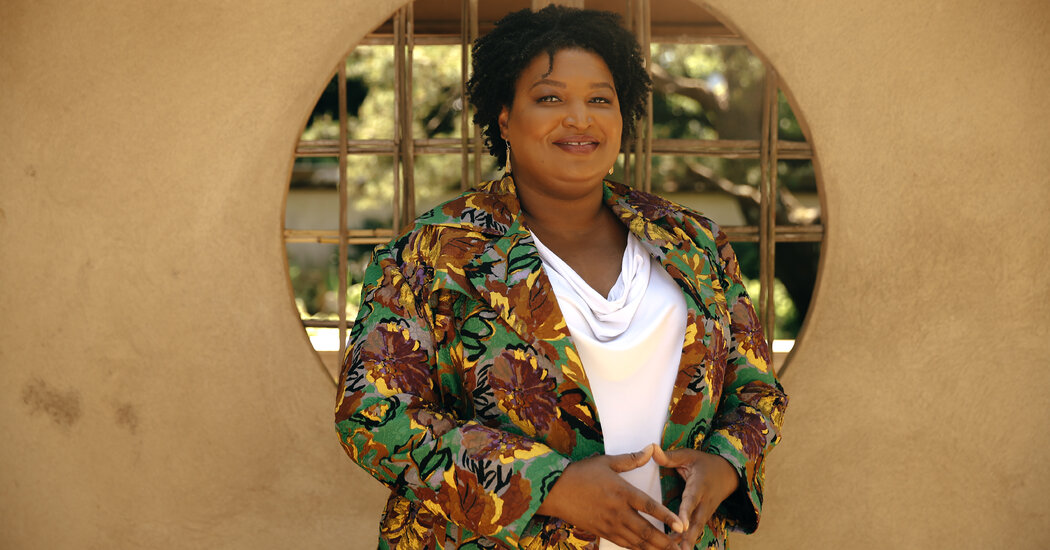
Stacey Abrams, the prominent Georgia Democrat who built a national profile as a voting rights advocate, announced on Wednesday that she would run again for governor of the state in 2022, setting up what is likely to be a high-profile clash with Gov. Brian Kemp, a Republican.
Three years after Ms. Abrams lost to Mr. Kemp — a longtime political rival — by about 55,000 votes, her candidacy ensures that voting rights will remain at the center of the political conversation in Democratic circles and in Georgia, where Republicans enacted a sweeping law of voting restrictions this year.
Ms. Abrams’s campaign also carries historical significance: If she is successful, she would become the first Black governor of Georgia and the first Black woman to serve as governor of any state.
“Opportunity in our state shouldn’t be determined by ZIP code, background or access to power,” Ms. Abrams said in a tweet, which included a video with the slogan “One Georgia.”
Her potential face-off with Mr. Kemp — along with a critical Senate race and several closely contested House contests — means that Georgia will again be a major political battleground in 2022. Last year, the state backed a Democratic presidential candidate for the first time since 1992, held two runoff elections that gave Democrats control of the Senate and was a central focus of former President Donald J. Trump’s attempts to overturn the election.
A Guide to the 2022 Governors’ Races
For all of the attention on the House and Senate campaigns, the governors’ races in 2022 may be just as important.
Democrats had widely expected the announcement by Ms. Abrams, a former minority leader of the Georgia House of Representatives who has come to embody the state’s changing racial and political makeup and was previously considered to be President Biden’s running mate. Though some Democrats have courted her to pursue a Senate seat and some activist groups have pushed her to run for president, her long-held goal has been to become governor of Georgia, according to longtime allies.
Ms. Abrams has often rejected strict ideological labels in interviews, and she has been embraced by members of both the moderate and progressive wings of the Democratic Party. Activist groups have highlighted her focus on voting rights and her political strategy, which emphasizes cross-racial voter turnout in an increasingly diverse state.
Moderate Democrats point to her policy stances, which have often stopped short of embracing left-wing litmus tests on issues like single-payer health care and a Green New Deal to combat climate change. Ms. Abrams’s first campaign video took a hyperlocal approach, showcasing the breadth of Georgia’s diversity and describing what Ms. Abrams has done since the 2018 race, with a nod to the coronavirus pandemic.
“We helped finance small businesses trying to stay afloat,” Ms. Abrams says in the video. “And I spoke up for families being left behind.”
Ms. Abrams, who was not on the ballot in 2020 but was a visible figure in the Democratic presidential primary contest and also completed a book tour, ensures another cycle of closely watched Georgia races that will attract millions of dollars from grass-roots donors and political advocacy groups.
Senator Raphael Warnock, a civil rights activist and pastor who in 2020 became the first Black senator to be elected in Georgia, is expected to run for a full term. Georgia’s congressional district lines are still in flux, but Republican state lawmakers may pit some of the state’s Democrats against one another, in an aggressive redistricting maneuver.
Mr. Trump also remains an important figure who could upend Republican unity, motivate the party’s base, inspire backlash among Democrats or some combination of all three. The former president has backed the Senate run of Herschel Walker, a former University of Georgia football star. And Representative Marjorie Taylor Greene, a Georgia Republican who has fashioned herself in Mr. Trump’s political image and caused several controversies in Congress, has disrupted the state’s political class.
Dueling statements issued on Wednesday by governor’s groups from both parties made clear that Democrats and Republicans now had their marquee matchup for 2022. Less than an hour after Ms. Abrams announced her bid, the Democratic Governors Association said that “it’s clear Brian Kemp’s days as governor are numbered.” People for the American Way, a progressive advocacy group, endorsed her within 90 minutes.
Republicans immediately sought to cast Ms. Abrams as both an out-of-touch national figure and as the face of the Democratic Party.
“Stacey Abrams is once again using Georgia to boost her own star while she plots a path toward her real career goal: President of the United States,” Maddie Anderson, a spokeswoman for the Republican Governors Association, said in a statement. “Stacey Abrams spent her time touring the country in search of fame and fortune.”




